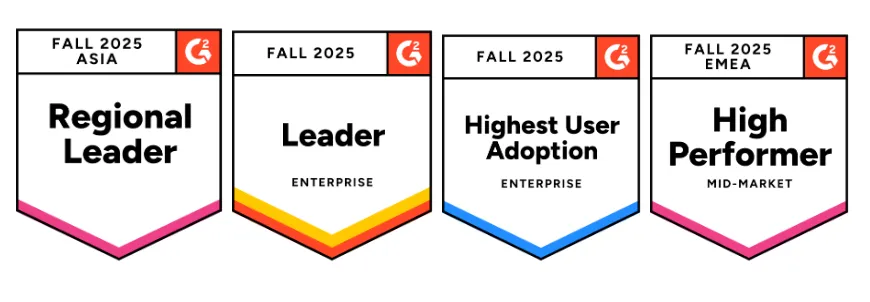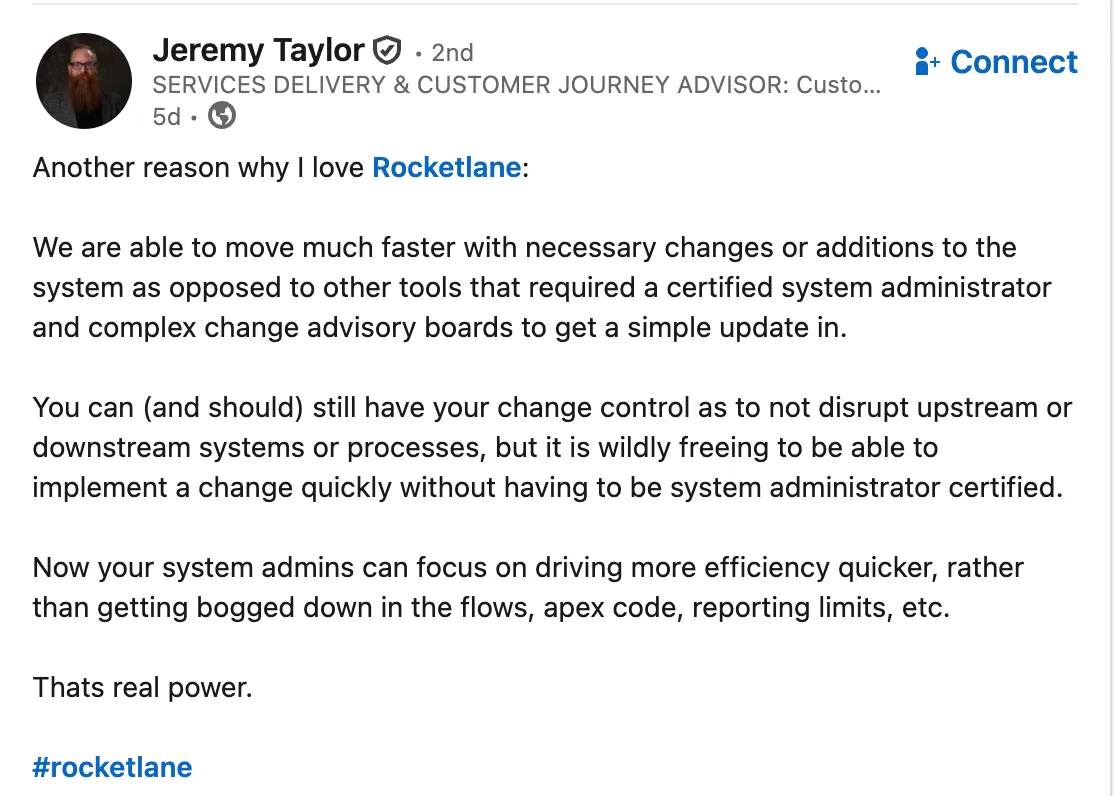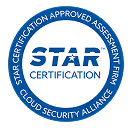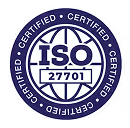Professional services businesses across the globe are increasingly evaluating Kantata alternatives to address evolving project management and resource optimization needs.
While Kantata (formerly Mavenlink and Kimble) has established itself in the professional services automation (PSA) market, many organizations are discovering that modern Kantata alternatives offer more innovative features, better user experiences, and superior value for professional services teams.
The professional services industry has transformed dramatically, with businesses demanding more agile, intuitive, and comprehensive PSA solutions. Whether you're managing a growing consultancy or steering an enterprise-level professional services organization, finding the right Kantata alternative can significantly impact your operational efficiency, client satisfaction, and bottom line.
This comprehensive guide explores the top five Kantata alternatives that professional services businesses worldwide—including those in APAC (Australia, New Zealand, Singapore, India) and EMEA (UK, Nordics, Germany, France, Israel) are exploring. It highlights solutions that excel in end-to-end services delivery, client collaboration, project delivery, and resource management capabilities.
Why mid-sized and enterprise services teams seek Kantata alternatives
Kantata (Mavenlink + Kimble) is undeniably feature-rich and enterprise-grade. But several pain points encourage businesses to consider other options:
- High cost and complexity: Kantata is positioned at the higher end of the market, often requiring significant investment and extensive implementation effort. Smaller teams or those without dedicated Salesforce/technical admins may find it too hard to configure.
- Steep learning curve: Kantata’s interface, while powerful, can be complex and not very intuitive, requiring considerable training to fully leverage. Its rigid workflows sometimes force teams to also rely on spreadsheets or supplementary tools for project management and flexibility.
- Limited front-office focus: Kantata excels at back-end PSA functions (resource planning, project accounting, time tracking) but neglects some front-office needs like client collaboration and streamlined delivery governance. This fragmentation means professional services teams might use multiple tools to manage client-facing work versus internal operations.
- Slow innovation: Kantata hasn’t kept pace with newer entrants in terms of UI modernity, AI-driven features, and agility. And add-ons for advanced functionality (AI insights, customer surveys, etc.) often cost extra.
If these challenges sound familiar, an alternative PSA solution might serve your team better.
What to look for in Kantata alternatives for professional services teams
Before diving into specific Kantata alternatives, it's crucial to understand what makes a PSA solution truly effective for professional services businesses. Modern PSA teams require:
- Real-time client accountability and visibility
Professional services businesses need PSA software that prioritizes client experience from day one. The best Kantata alternatives recognize that client onboarding and project visibility directly impact customer satisfaction and retention rates.
- Enterprise-ready flexibility for long-term success
Whether you're a growing mid-sized consultancy firm or an established enterprise, your chosen Kantata alternative must scale seamlessly with your business. Professional services organizations need solutions that can handle increasing project complexity without compromising performance.
- Seamless integration capabilities
Services businesses typically use multiple tools across their tech stack. Leading Kantata alternatives offer robust integration ecosystems that connect with CRM systems, financial software, and collaboration tools.
- Advanced resource planning and utilization tracking
Effective resource allocation remains a critical challenge for professional services teams. The most compelling Kantata alternatives provide advanced resource planning and utilization tracking capabilities.
The top 5 Kantata alternatives for professional services teams
1. Rocketlane: The AI-powered category definer for professional services teams
Best suited for: Mid-market and enterprise services businesses seeking next-generation, AI-first PSA capabilities
Rocketlane has emerged as the most comprehensive Kantata alternative for services businesses that refuse to compromise on client experience or operational efficiency.
Unlike traditional PSA tools that often feel clunky and disconnected, Rocketlane offers a unified platform specifically designed for managing projects, resources, and client collaboration in one tool.
It has therefore become the default choice for leading AI-first companies, innovative SaaS businesses, top-tier consultancies, HR Tech leaders, partner-involved implementation firms, and enterprise FinTech companies among others. This impressive customer base reflects the platform's ability to handle the most demanding professional services requirements while delivering exceptional results.
Why Rocketlane emerges as the ultimate Kantata alternative
1. All-in-one PSA + Client portal: Rocketlane provides everything professional services businesses need in one intelligent platform:
- Advanced project management: Sophisticated project orchestration with dynamic templates, automation, and intelligent workflows to accelerate project delivery
- Intelligent resource management: AI-powered resource allocation and capacity planning that maximizes utilization
- Business intelligence & analytics: Real-time dashboards and reporting that provide actionable insights with complete visibility into client relationships and project portfolios
- Integrated Invoicing: Seamless billing and revenue recognition within the platform
… and more.
The crown jewel of Rocketlane's offering is its fully customizable, best-in-class client portal. Unlike basic client access features in other Kantata alternatives, Rocketlane's portal ensures clients are always informed, engaged, and accountable. This transparency builds trust, accelerates decision-making, and dramatically improves client satisfaction scores.
The platform lets you manage internal operations and engage with clients on the same collaborative workspace platform, bridging the gap that tools like Kantata leave open.
2. Modern, easy-to-use interface: As a next-gen tool, Rocketlane prioritizes usability and agility. Teams report that it feels far more intuitive and flexible than legacy PSA software. You won’t need weeks of training to get up to speed, which is a big plus for fast-growing teams that need quick onboarding.
3. AI-driven efficiency: Unlike Kantata and other legacy alternatives, Rocketlane infuses AI and automation throughout the services delivery lifecycle to eliminate busywork. From AI-assisted project planning to automated client updates and intelligent workflows, it helps teams deliver projects faster and more consistently. For example, Rocketlane’s AI Fills acts as your personal meeting assistant that ensures no critical information is lost. It helps you turn your meetings into timely client updates, polished project documentation, and detailed project notes in seconds.
And Rocketlane’s Resource AI helps assemble the perfect project team with a single click. It analyzes skills, availability, past performance, and project requirements to instantly recommend optimal team compositions, eliminating hours of manual resource planning.
4. Built-in project governance: Governance and standardization are baked into Rocketlane. You can templatize best practices, enforce milestones, and ensure every project follows your delivery playbook. This yields more predictable outcomes and higher client satisfaction.
5. Advanced analytics and reporting: Services businesses using Rocketlane gain insights that go beyond basic project metrics. The platform's analytics engine helps identify bottlenecks, optimize resource utilization, and predict project risks before they impact delivery using automations.
Why Rocketlane is the best for professional services teams
Rocketlane is purpose-built for services professionals, with a clear understanding of where older PSA systems fall short. It’s particularly well-suited for mid-market and enterprise professional services teams that demand robust functionality without the usual complexity.
Unlike some lightweight tools that cater only to small businesses, Rocketlane scales up to support global teams and complex projects, all while maintaining an intuitive user experience. It offers enterprise-grade capabilities, security, integrations, scalability, and modern conveniences like real-time collaboration and AI, striking a balance that legacy platforms struggle to achieve.
Bottom line
Services leaders across industries (SaaS and Services) consistently find Rocketlane better equipped to meet their needs.

- IT services and implementation teams like nCloud Integrators and Flycast Partners benefit from its seamless integrations and agile-friendly workflows that provide both technical depth and executive visibility.
- Marketing and creative agencies like Craze gain from Rocketlane’s superior resource management and client collaboration features, which outpace competitors like Scoro and Accelo in helping agencies scale operations.
- Consultancies value Rocketlane’s sophisticated project templating and milestone tracking for handling complex, multi-phase engagements.
- Meanwhile, accounting and financial services firms like GoCardless rely on Rocketlane’s detailed business intelligence modules and role-based access controls to ensure compliance and security.
Rocketlane delivers more value across industries than other legacy solutions by combining flexibility, collaboration, and governance in one platform.
2. Certinia: A Salesforce-native PSA
Best suited for: Large enterprises with existing Salesforce investments
Certinia Professional Services Cloud (formerly FinancialForce PSA) presents itself as a Kantata alternative primarily for organizations heavily invested in the Salesforce ecosystem. It offers robust project accounting, resource management, and invoicing capabilities tightly integrated with Salesforce CRM data.
Key features:
- Salesforce integration: Certinia’s biggest selling point is its seamless integration with Salesforce. Your sales opportunities, projects, and finances all live in one connected environment. This unified view of customers (from sales through delivery) is great for firms already running on Salesforce CRM. You can leverage Salesforce objects, reports, and automations within PSA processes.
- Financial management: Certinia supports complex revenue recognition rules, multiple billing models (fixed price, time & materials, subscriptions), budget vs. actual tracking, and rich financial reporting. For organizations with intricate accounting needs, these features are a big plus.
- Resource management: Certinia provides solid resource planning tools (skill profiles, capacity planning, utilization tracking) to help large teams optimize staffing. It may not be as AI-driven as some newcomers, but it covers core needs for assigning the right people to the right projects and forecasting demand.
Pros:
- Deep Salesforce CRM integration for true quote-to-cash flow. Ideal if your whole business runs on Salesforce.
- Robust project accounting and billing/invoicing features, suitable for enterprise financial control.
- Scalable and customizable as it inherits Salesforce’s native platform capabilities and can be extended with Salesforce tools.
Cons:
- Steep learning curve and expertise required: Because it sits on Salesforce, Certinia feels like Salesforce. That means the UI can be clunky for daily project use, and configuration often requires a Salesforce admin’s expertise. For teams not already Salesforce-savvy, this adds overhead.
- Not very user-friendly: Many users find that it’s not as intuitive or modern in interface compared to newer PSA tools. End-users, project managers, consultants might struggle with the navigation and need training.
- Implementation effort: Deploying Certinia is essentially a Salesforce project. It often requires certified consultants and lengthy setup to tailor it to your needs. It’s a heavy lift, which only large organizations may justify.
- Cost: Enterprise software pricing applies here. Licenses are typically obtained via Salesforce sales, and the cost can be significant. Plus, remember you’ll need Salesforce licenses on top of PSA if you don’t have them already.
Bottom line
Certinia is a top choice for large enterprises that already run on Salesforce and need a PSA tightly woven into their CRM/ERP. However, professional services teams frequently report that Certinia's user experience feels dated compared to modern Kantata alternatives, particularly in areas of client collaboration. It also requires significant customization and lengthy implementation periods. The total cost of all these, including implementation, customization, and ongoing maintenance, often exceeds initial expectations.
3. Oracle NetSuite OpenAir: PSA for finance-focused organizations
Best suited for: Organizations already using Oracle's suite of products
OpenAir, now part of Oracle NetSuite, positions itself as a Kantata alternative for professional services businesses already using NetSuite’s ERP or financial software. It is a legacy PSA platform known for its support for global financial management needs. It’s marketed as an end-to-end solution for project management and resource allocation, with the big advantage of natively syncing project data with your enterprise financials.
Key features:
- Native NetSuite ERP integration: OpenAir connects directly with NetSuite’s ERP, enabling seamless data flow between project delivery and financials. For example, timesheets and project expenses in OpenAir can feed into your accounting/invoicing in NetSuite without manual data entry. This is highly beneficial for organizations already on NetSuite, ensuring real-time financial visibility across projects.
- Complex financial and global support: OpenAir handles sophisticated billing and revenue recognition rules, compliant with global standards and supports multi-currency, multi-subsidiary setups. It’s designed with enterprise financial controllers in mind, offering robust capabilities for revenue forecasting, multi-country tax requirements, and integration to General Ledger systems. In short, it’s built to please the finance team.
- Resource management: The platform includes resource booking and scenario planning modules. You can do “what-if” modeling for resource staffing (e.g., simulate if you have enough consultants for a potential project).
Pros:
- ERP-level governance: Excellent for organizations that need tight control and auditability, especially if you’re aligning projects with financial systems. The NetSuite integration is a big plus for eliminating data silos
- Global and complex project management: Supports international operations – multi-currency, multi-entity consolidation, complex billing arrangements.
- Flexible billing and revenue rules: Support for various billing models and automated revenue recognition, which can save a ton of manual effort for finance departments.
Cons:
- Outdated UI: OpenAir’s user interface and overall flexibility have not kept pace with newer tools. Most users find the interface not very intuitive or modern.
- Collaboration limitations: More critically, OpenAir lacks strong built-in collaboration features like dedicated client portals or real-time communication on projects. This can hinder client engagement and internal team adoption in today’s collaborative work culture.
- Reduced flexibility for agile teams: The platform’s structure can be rigid, which is fine for waterfall projects or strict processes, but it struggles with dynamic, agile project management. Teams often report needing to adapt their workflow to the tool, or using external PM software for more flexibility.
- Steep learning curve: Like most legacy systems, there’s a steep learning curve. Initial setup and configuration of OpenAir can be time-consuming and might require specialized consulting help. Without significant configuration, some users say they only realize efficiency gains after they’ve put in a lot of effort to tailor OpenAir to their processes.
- Increased costs: OpenAir can become expensive, especially if you have many occasional or light users. It tends to make financial sense primarily if you’re already in the NetSuite world. Organizations using other ERPs or that don’t need the deep financial integration may find OpenAir’s cost hard to justify given the trade-offs in usability.
Bottom line
OpenAir is a strong PSA contender for companies already invested in Oracle NetSuite, or those that prioritize financial integration over front-end flexibility. If your professional services team works closely with finance and you need that ERP-level control, OpenAir delivers solid capabilities (and your CFO will likely love it). On the other hand, fast-moving services teams that value ease of use, quick collaboration, and innovation may find OpenAir cumbersome.
User feedback also consistently highlights challenges with OpenAir's reporting capabilities and the difficulty in extracting actionable insights without extensive customization.
So, consider your organization’s priorities: if financial reporting and NetSuite integration trump everything, OpenAir could be your pick; if not, a more contemporary PSA tool might serve you better.
4. Accelo: PSA Suite for small and mid-sized businesses
Best suited for: Small professional services teams with basic PSA needs
Accelo takes a somewhat different approach in the PSA space. It is an all-in-one work management platform designed primarily for small to mid-sized professional services businesses (think agencies, consultancies, IT service providers). Accelo combines elements of CRM, project management, time tracking, and even support ticketing into one platform.
Key features:
- Project management: Accelo lets teams manage projects with tasks, milestones, and Gantt charts, while automatically tracking time and progress. It may not have advanced resource optimization of enterprise PSA tools, but it covers the essentials of project delivery in a straightforward way.
- Built-in CRM and service modules: Accelo includes CRM capabilities and even modules for managing retainers, ongoing services, and support tickets. This reflects its goal of automating client work end-to-end, from the sales cycle into project delivery and post-project support. Service businesses that want one system instead of separate CRM, project, and support tools find this appealing.
- Retainer and subscription type billing: Accelo is known for its support of recurring services. If your business operates on retainers or managed services contracts, Accelo can automate tracking of hours against retainer budgets, recurring invoicing, etc.
Pros:
- User-friendly interface: Accelo generally earns praise for being easy to use, especially for teams that might not have used PSA software before. The learning curve is mild, which is crucial for small teams without dedicated training resources.
- Unified view of the customer journey: Because it has CRM, project, and service management in one, you get a unified view of the customer journey. Sales staff, project teams, and support can all be on the same page about client status. This is great for small businesses trying to break down silos.
- Billing for retainers: If you bill clients on ongoing contracts or need to manage recurring work, Accelo handles that well with its retainer management features.
- Affordable and SMB-focused: Accelo’s pricing is generally lower than other legacy enterprise PSA tools, and it offers tiered plans that smaller companies can afford. It’s a fit for those who have outgrown basic tools like spreadsheets but aren’t ready for a big-budget enterprise system.
Cons:
- Limited for complex projects: Accelo’s simplified approach can hit limits with very complex or large-scale projects. Users have noted it may not suit highly complex projects that require advanced scheduling, scenario planning, or intricate budgeting. In other words, it’s great for straightforward projects but not as robust for multi-team, multi-month implementations with lots of moving parts.
- Scalability constraints: Relatedly, Accelo has limited scalability and customization options compared to modern, enterprise PSAs. As a company grows to hundreds of users or has very specific process needs, they might start feeling the product’s constraints (e.g., fewer custom fields, simpler resource management, etc.).
- Navigational challenges: While generally user-friendly, some users report that certain parts of the UI can be challenging to navigate and that the system still has quirks requiring manual effort for initial setup and configuration. So, it’s not perfect, just easier overall than many others.
- Not focused on frontend client collaboration: Accelo is more about internal automation than client collaboration. It doesn’t have the sophisticated client portal experience that a tool like Rocketlane provides, for example. Clients might get email updates and can reply via a portal for support tickets, but it’s not truly a project workspace for clients.
Bottom line
Accelo is a decent Kantata alternative for smaller professional services firms or agencies that want an integrated, easy-to-use system covering sales through project delivery. However, if you anticipate fast growth or have already reached a level of scale/complexity (multiple departments, hundreds of staff, very large projects), you might quickly outgrow Accelo’s capabilities.
Users also report that Accelo's performance can degrade with larger project volumes, and its resource management capabilities lag behind enterprise-focused Kantata alternatives.
Customer support and platform stability have been recurring concerns in user reviews, with professional services teams experiencing frustrations during critical project phases. The platform's customization options are also limited compared to more robust Kantata alternatives.
5. Scoro: Work management tool with PSA capabilities
Best for: Small to mid-sized agencies with straightforward requirements
Scoro is another business management software that often comes up as an alternative in the PSA and project management space. Hailing originally from Europe (Estonia) and now used globally, Scoro targets professional services companies by providing a suite that includes project management, resource scheduling, budgeting, and billing wrapped in a modern interface. It’s a bit of a bridge between traditional PSA and general project management tools, with an emphasis on combining project work with advanced financial insights.
Key features:
- Project management: Scoro allows project planning with tasks, deadlines, dependencies, and assignments, along with time tracking and work reporting. It gives a real-time view of project progress and team utilization, much like a PSA tool would.
- Financial management and billing: Scoro has integrated quoting, billing, and budgeting modules. You can create budgets for projects, issue invoices to clients, track billable vs. non-billable time, and monitor profitability all within Scoro. It also integrates with accounting software, so your financial data doesn’t live in a silo.
- Resource allocation: Scoro includes tools for scheduling your team’s work and managing resource availability. You can allocate people to projects, see who is overbooked or underutilized, and adjust schedules accordingly.
- Reporting and dashboard analytics: Scoro provides a set of dashboards and reports, combining project KPIs with financial metrics.
Pros:
- Work management solution: Scoro is capable of handling various aspects of business management, not just PSA, which can be beneficial if you want one system for project work, CRM, billing, etc.
- Financial control: Compared to many project management tools, Scoro goes deeper into financials. The ability to manage budgets, quotes, and invoices within the same platform as project delivery is a big plus for services firms that want to tightly monitor profitability.
- International usage: Scoro supports multi-currency and has customers across UK, Europe, and beyond, which suggests it can handle regional needs in EMEA markets.
Cons:
- Steeper learning curve: Despite a modern look, Scoro can be challenging for users to navigate. There’s a lot in the system, so onboarding your team might take time and training. Smaller teams might find it more complex than they need initially.
- Too complicated: Scoro is potentially “too much” for very small organizations. In fact, some consider it more suitable for companies that have the capacity to utilize its full range of features.
- Cost and pricing model: Scoro isn’t a cheap tool. It’s priced at a premium, closer to PSA systems than to simple project management apps.
- Not purpose-built for PSA teams: While Scoro does many PSA functions, it’s not a dedicated PSA specialist. For example, Scoro might not have as advanced resource optimization algorithms or AI features focused on services delivery. It covers the bases but might lag in niche PSA capabilities that pure-play PSA vendors emphasize.
Bottom line
Scoro is a robust Kantata alternative for those who want a business management software, especially if financial management is as important as project execution. If your organization in, say, the UK or Europe is looking to consolidate tools, Scoro’s European roots and well-rounded feature set can be attractive. But professional services teams requiring sophisticated resource forecasting or complex project hierarchies may find Scoro's capabilities insufficient.
Integration limitations and reporting constraints are also frequently cited concerns, with professional services businesses finding it challenging to connect Scoro with their existing technology stack or extract the detailed analytics needed for strategic decision-making.
So, which PSA tool is the best for your team?
Finding the best Kantata alternative for your professional services organization comes down to balancing functionality, ease-of-use, and alignment with your business needs.
Here’s a decision framework for professional services leaders to choose the right PSA software
If you’re currently evaluating Kantata alternatives, here’s a structured decision framework to guide your selection process:
1. Alignment with business strategy: Does the platform support your business objectives?
A PSA solution should do more than just manage and execute projects. It should reinforce your core strategy, whether that’s entering new markets, scaling teams, or boosting profitability. Look for a platform that adapts to your business model instead of forcing you into rigid processes.
2. User experience excellence: Will your team actually adopt and use the solution?
Adoption is everything. If your team finds the software confusing or clunky, you won’t get the ROI you expect. Seek out intuitive platforms with simple interfaces, mobile accessibility, and strong onboarding resources. A solution that your consultants, project managers, and executives want to use is far more powerful than one that just checks the boxes.
3. Client value delivery: Does it enhance your client experience?|
The best PSA software doesn’t just help you run your business. It helps you deliver superior outcomes for clients. Evaluate how each alternative enables transparency, collaboration, and reporting. Can clients easily access project updates? Does the tool improve communication and build trust?
4. Integration capabilities: Can it work with your existing technology stack?
No system stands alone. Your PSA must connect with your CRM, ERP, HR, and financial systems to create a seamless workflow. Consider whether the alternative offers open APIs, pre-built integrations, or marketplace apps that reduce manual work and data silos.
5. Scalability and flexibility: Will it grow with your business?
Professional services firms evolve quickly. The solution you choose should handle growth in team size, client volume, and project complexity. Flexible licensing models, configurable workflows, and customizable dashboards are essential to future-proofing your investment.
6. Vendor partnership quality: Is the vendor invested in your success?
Finally, evaluate the human side of the technology. Does the vendor act as a partner who is invested in your success? Look for a provider that offers responsive support, regular product updates, and a roadmap aligned with industry best practices. A true partner will help you continuously improve, not just sell you a license.
If you’re a growing services organization in APAC or EMEA (or anywhere, really) and are seeking to improve your delivery and client satisfaction, don’t hesitate to explore these alternatives. And if a client-centric, future-ready PSA is what you’re after, Rocketlane certainly deserves a closer look as a platform that can elevate your service delivery to new heights.
That’s why Rocketlane is also consistently ranked #1 on G2 by users like you.

We know switching PSA software is a big decision and can even be daunting. Take the time to demo these options, involve your stakeholders (from project managers to finance leads), and evaluate which tool feels like a catalyst for your business versus a cumbersome compromise.
Rocketlane’s team is also there to help you every step of the way. The platform was designed to make life easier for project managers, consultants, and clients alike. Imagine having one place where your entire client journey post-sale is managed seamlessly: from kick-off, to project delivery, to sign-off, all with full visibility for your customer. That’s what Rocketlane strives to deliver.
It’s this focus on both your internal efficiency and your client’s experience that really sets it apart. Modern services teams ready to move beyond yesterday’s limitations are finding Rocketlane a compelling choice. Don’t just take our word for it. Give Rocketlane a look, and you might soon wonder how you managed client projects without it. 😉

Here’s to finding the right PSA software that propels your business forward and 50x your gains.













